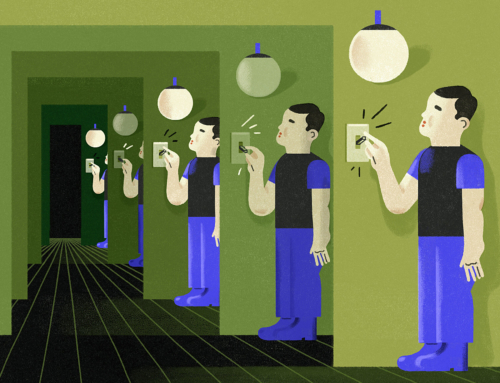Tuesday 6th of June, 2023.
Written by Psychologist, James Blaze.
MEN’S MENTAL HEALTH
 Modern day men and men’s issues
Modern day men and men’s issues
Everyone can feel pressure to conform closely to gender roles they are socialised into in order to feel valued, fulfilled and satisfied with their life. Men that have difficulty meeting traditionally masculine and gender roles might be more susceptible to experiencing what could be termed “men’s issues”. This may include vulnerability to adhering to stereotypes of providing and protecting which can lead to concern with financial difficulties, work stress, unemployment, perceived deficiency in physical prowess and loneliness from family, friends, partners or work colleagues.
Signs that a male in your life might be struggling
When men are not able to manage well, they can resort to showing their distress in ways you may recognise. You may have seen them experience physical symptoms like headaches, tiredness or body aches. They may also readily decline invitations to speak about how they are coping or downplay any changes you may have noticed in their behaviour. Substance use may no longer be recreational and controlled but used excessively to numb feelings. Aggression, irritability or anger may be noticed more often as a coping strategy used when they feel they are being treated unfairly in life.
Men experiencing loneliness may recede into a solitary place in their home. They may avoid their usual activities or hobbies. You might also pick up that they engage in activities that provide them any kind of positive feelings whatsoever or serve to relieve them from distress. These could include sleeping longer than usual, excessive video game use or excessive pornography use, each of which may worsen the state of their already suffering mental health.
Therapy to suit men
It could be argued that a common perception of therapy is an emotionally charged talk-based therapy. This is only one form of therapy and may not be best suited for men who do not like to talk, let alone talk about their feelings. One evidence-based treatments for common mental health disorders in males involves a heavy emphasis not on talking, but doing. Behavioural activation, a kind of cognitive behavioural therapy, involves regularly perform activities that were once meaningful.
This therapeutic process involves breaking down and scheduling abandoned hobbies/interests, daily tasks or errands into realistic, attainable sub-goals to protect from unnecessary disappointment associated with failure. Regular engagement helps to build up completion competence gradually over time. Behavioural activation hinges on incremental changes to lifestyle habits such as sleep, diet, exercise and socialising in order to restore enduring feelings of pleasure and achievement in order to combat mental illness.
If you or a male in your life decides to seek help, they should know that what they say in therapy is held in the strictest of confidence with their therapist who is bound by an ethical code. The only conditions whereby this does not apply is when they share information that reveals someone may be in danger (or if what they say is subject to subpoena for a legal proceeding).
Asking for help
It is common for the narrative, “men do not speak about their mental health and they should” to routinely circulate social media platforms. Spreading only this idea may risk blaming and alienating men from help seeking even further as it may place further pressure on men to take obligatory action with lesser empathy for the reasoning behind such a struggling group of men.
Rather the aim is to understand the biological and social factors that inhibit males from seeking help and truly empathise with the gravity of asking for help. Instead of posing help seeking as a concession to masculinity, males could be encouraged to reframe help seeking and mental health management as a process both vital to alleviating issues as well as reconnecting and embracing their masculine role function. This way, males may not help seek from a place of pressure, desperation or forceful compliance but empowerment to reconnect with what makes them a man.
Seeking help does not mean that an individual is incapable of managing alone. Help seeking is about asking for guidance when you don’t have the instructions.
References
How depression can look different for men (2022) Mayo Clinic. Mayo Foundation for Medical Education and Research. Available at: https://www.mayoclinic.org/diseases-conditions/depression/in-depth/male-depression/art-20046216 (Accessed: March 20, 2023).
Improving men’s well-being and resilience (2022) MHFA Community. Available at: https://community.mhfa.com.au/improving-mens-well-being-and-resilience/?gclid=CjwKCAjw5dqgBhBNEiwA7PryaL2zWBD5piEGF0Ay1Io5heJO3IdzCJtjIp75udEcteXI6USnvE-kFBoCmPIQAvD_BwE (Accessed: March 20, 2023).
Mazzucchelli, T., Kane, R. and Rees, C. (2009) “Behavioral activation treatments for depression in adults: A meta-analysis and review.,” Clinical Psychology: Science and Practice, 16(4), pp. 383–411. Available at: https://doi.org/10.1111/j.1468-2850.2009.01178.x.
Men’s mental health – common challenges (2023) MensLine Australia. Available at: https://mensline.org.au/mens-mental-health/mens-mental-health-common-challenges/ (Accessed: March 20, 2023).
Men’s mental health – common challenges (2023) MensLine Australia. Available at: https://mensline.org.au/mens-mental-health/mens-mental-health-common-challenges/ (Accessed: March 20, 2023).







